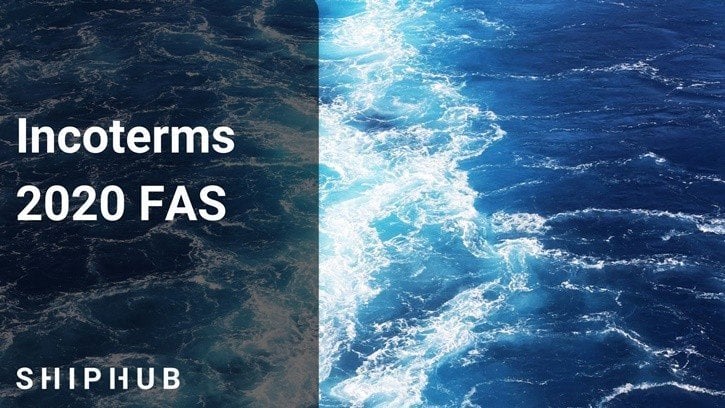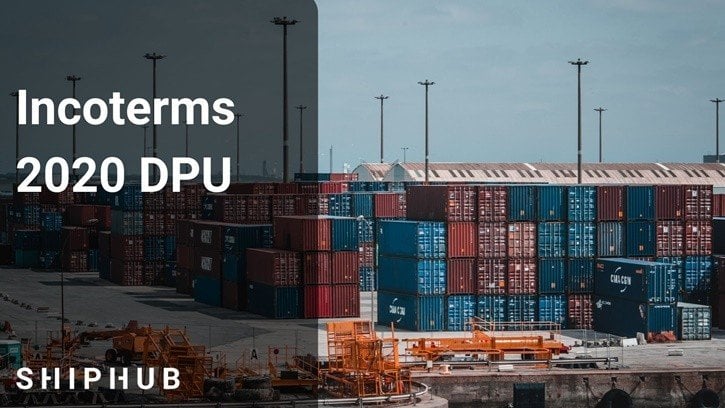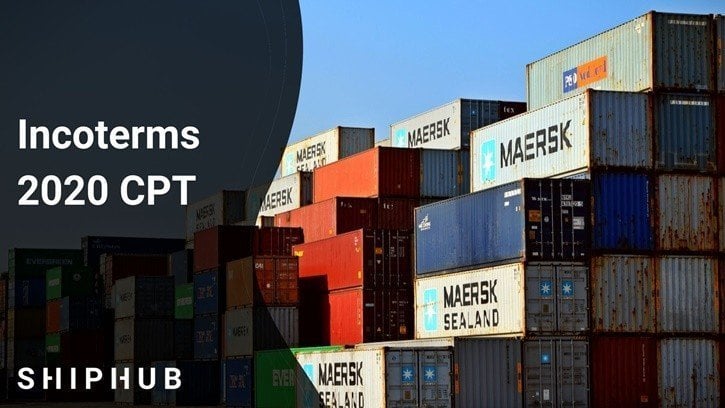When you decided to import goods from China, we recommend you read more about the Incoterms 2010. Incoterms or the International Trade Rules is a set of rules that define the terms of sale in the turnover of material goods. Incoterms include issues related to the transport of products from the seller to the buyer. It is not obligatory, but it can significantly facilitate the transaction, and the whole procedure of carriage will be much smoother.
About Incoterms
- We are using Incoterms in trading in material goods.
- The use is optional.
- Applicable only and exclusively to the importer and exporter (not suitable to transport companies or forwarders).
Incoterms 2010 refer to the issue of transporting products from the seller (exporter) to the buyer (importer). Incoterms also include carrying products, covering the costs of transport itself, insurance costs, cost of risk transfer for the condition of products at various points in the transport process.
Groups of Incoterms 2010
We divide Incoterms 2010 into groups into groups that concern specific conditions. The division is due to transport and insurance fees, risk transfer, liability for formalities and costs related to export and import customs clearance.
Group E – Departure
The seller makes the goods available to the buyer at the designated place. Furthemore the seller is not obliged to provide export customs clearance, as well as doesn’t bear the costs or the risk of loading the goods.
Group E
- EXW – Ex Works (… named place). – This term represents the minimum obligation and commitment to the seller and maximum liability to the buyer. The delivery is considered to have been made at the time the goods are placed at the disposal of the buyer in the designated place (ex. premises). The seller doesn’t have to do anything more.
Group F – Main Carriage Unpaid
This group obliges the seller to make export customs clearance. The seller doesn’t pay for the basic transport or insurance costs.
Group F
- FCA – Free Carrier (… named place). – The seller has to pay for the transport, loading, and insurance until the goods are delivered to the first carrier, indicated by the buyer, in the designated place. Products are considered as delivered at the time of loading by the carrier, and at this point, the risk of damage or loss of goods is transferred to the buyer.
- FAS – Free Alongside Ship (… named loading port). – Responsibility for transport costs and the seller’s risk ends when the goods are delivered to the ship’s broadside at the designated port of departure, but without loading the goods onto the ship. This means that the buyer has to bear all costs and risks of loss of or damage to the goods from that moment. This term should be used only for non-containerized sea-freight and similarly for inland waterway transport.
- FOB – Free on Board (… named loading port). – The point of transferring costs and risks for the goods from the seller to the buyer is the moment of crossing the ship’s broadside through the products. The seller also bears the loading costs. The term should only be used for maritime so as for inland waterway transport.
Group C – Main Carriage Paid
The seller agrees to carries and bears its costs. The seller is also obliged to make export customs clearance. The risk is transferred to the buyer at the time of sending the goods. All additional costs appeared after loading, are related to transport, and other actions are charged by the buyer.
Group C
- CFR – Cost and Freight (… named destination port). – The seller doesn’t bear the costs of insure the goods (from the time of loading goods to the ship in the port). In contrast – buyer is obligated to do it. The delivery er cis considered completed when the products are loaded onto the carrier’s ship indicated by the seller.
- CIF – Cost, Insurance, and Freight (… named destination port). – Unlike CFR, in CIF the seller is also responsible for the conclusion of the contract and payment of the cost of insure the good in favor of the buyer. Both CFR and CIF can only be used for maritime and inland waterway transport.
- CPT – Carriage Paid To (… named destination port). – It is an equivalent to CFR in transport other than sea and inland water (including multimodal). The seller pays for the carriage of the goods up to the named place of destination. The products are considered to be delivered when the goods have been handed over to the main carrier so that the risk transfers to the buyer.
- CIP – Carriage and Insurance Paid To (… named destination port). – It is an equivalent to CIF in transport other than sea and inland water (including multimodal). Similar to CPT with the exception that the seller is required to obtain insurance for the goods while in transit.
Group D – Arrival
The seller is obliged to deliver the goods to a specific place or port of destination.
Group D
- DAT – Delivered at Terminal (… named place). – This Incoterm requires that the seller delivers the goods, unloaded, at the designated terminal. The seller covers all the costs of transport and assumes all risk until arrival at the destination port or terminal. Even more all charges after unloading have to be paid by buyer.
- DAP – Delivered at Place (… named place). – The seller is responsible for delivering the goods to a specified location, while unloading is already an obligation of the buyer. Under DAP terms, the risk passes from seller to buyer from the point of destination mentioned in the contract of delivery.
- DDP – Delivered Duty Paid (… named place). – Seller is responsible for delivering the goods to the named place in the country of the buyer and also pays all costs in bringing the goods to the destination including import duties and taxes. This term places the maximum obligations on the seller and minimum obligations on the buyer. No risk or responsibility is transferred to the buyer until the delivery of the goods at the named place of destination.
Incoterms 2010 – Import and export
Transport is very important due to terms of import and export. Many importers starting import from China do not know what Incoterms 2010 is. When deciding on a particular type of transport, it is worth getting acquainted with the issue of Incoterms. Understanding the terms of Incoterms 2010 is important when negotiating with a Chinese business partner.





